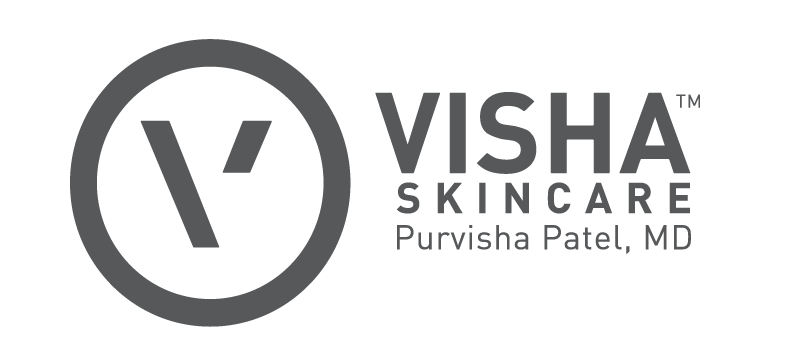
Unfortunately for many with acne-prone skin, the frustration doesn’t stop once a blemish is healed. Marks in the form of acne scars or dark spots linger on, and it can be difficult to get rid of them. Continue reading to learn more about acne scars and dark spots, as well as the products and professional treatments you can use to fade them.
What are Acne Scars?
Acne scars are typically caused by more moderate to severe acne. When a blemish is inflamed, the body responds by creating either an excess or too little tissue to try to heal the spot, treating it as an injury. This results in an acne scar.
These scars result in a textural change in the skin, around the spot where the blemish existed. With an excess of tissue, a raised scar is produced (called hypertrophic scars). With too little tissue, a depressed scar is produced (called atrophic scars). These types of acne scars don’t fade on their own, and typically require treatment from a professional in order to fully diminish their appearance.
What are Dark Spots?
Dark spots from acne (or post-inflammatory hyperpigmentation) are often referred to as acne scars. However, since they don’t deal with an excess or loss of tissue, they aren’t technically scars.
These spots are simply a discoloration of the skin. As with the acne scars mentioned above, these discolored spots are formed as your body is trying to heal itself from the injury of the breakout. Melanocytes (which are pigment producing cells distributed throughout the skin) swell when they are exposed to inflammation, creating these discolored, flat spots.
Over time, these spots generally fade on their own. However, there are professional treatments and over-the-counter products you can use to speed up the process.
What Causes Acne Scars and Dark Spots?
Acne scars and dark spots are both usually the result of inflammation of a pimple. This inflammation may come from the pimple itself. However, any trauma caused to the blemish (such as through picking or squeezing it) can also cause an acne scar or dark spot to form.
How Do You Get Rid of Acne Scars and Dark Spots?
There are both professional treatments and over-the-counter products you can try to minimize the appearance of acne scars and dark spots. For over-the-counter products, it is important to look for exfoliating ingredients, such as retinol, azelaic acid, salicylic acid, and AHAs (like glycolic and lactic acid). These types of ingredients work by essentially tricking the skin into thinking it is being wounded. The top layer of skin is sloughed away and the production of collagen is promoted, resulting in decreased acne scars and lightened dark spots.
For acne scars, professional treatments options include chemical peels, microneedling, and lasers. Dark spots are best treated with either lasers or chemical peels. Multiple sessions may be needed to fully fade spots or scars. Meet with a dermatologist to determine which type and strength of treatment will work best for your specific needs.
Dark spots can also be faded using a prescribed hydroquinone cream, which lightens the skin. However, hydroquinone has been found to be toxic, and should not be used for more than 12 weeks.
The Best Products to Try for Acne Scars
If you want to try an over-the-counter product to minimize the appearance of dark spots or acne scars, try out these two effective options:
Visha Skincare Advanced Correcting Serum with Illuminotex™
This multitasking anti-aging serum contains a variety of active ingredients that both decrease and prevent breakouts and minimize scarring and spots. The formula includes retinol, vitamin E, lactic acid, glycolic acid, and azelaic acid, all of which work to exfoliate, brighten, and even out the skin tone. There is also Illuminotex™, a natural skin-lightening complex that is safer than hydroquinone. Beyond minimizing the appearance of dark spots and scars, these ingredients boost collagen production, soften wrinkles, and minimize the appearance of pores.
Visha Skincare Advanced Purifying Cleanser
This effective cleanser features zinc, salicylic acid, glycolic acid, and citric acid, which work to prevent and treat pimples while also exfoliating the skin to decrease scarring. The active ingredients also help to reduce redness and irritation. It is free of sulfates and parabens, and can be used twice daily to effectively cleanse debris and residue and reveal smoother, more even toned skin.
The Bottom Line
Acne scars and dark spots plague many acne sufferers, but thankfully they can be treated, either with professional treatments or over-the-counter products. In order to prevent these scars from getting darker and more noticeable while you are trying to diminish them, be sure you are wearing an SPF of at least 30 on a daily basis. This will decrease the exposure of the inflamed skin to UV radiation.


